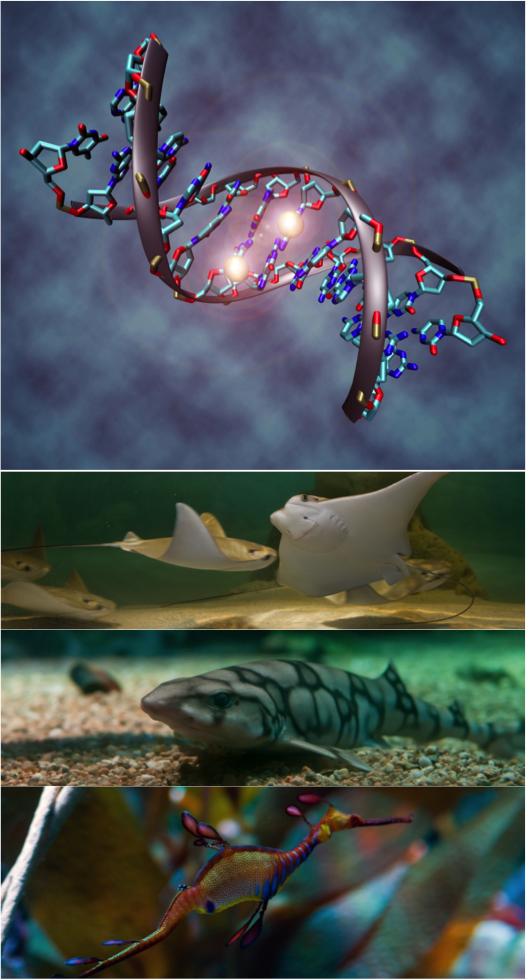Can you imagine that a shark or an eel might help your doctor to treat cancer? Ocean Genome Legacy is collaborating with the Austrian Academy of Sciences to study marine genomes in the search for new cancer therapies.
Cancer cells are harmful because their genetic programming contains errors, causing genes to turn on or off abnormally. By comparing how diverse animal species manage these genetic on/off switches, scientists hope to understand how and why they go wrong—thereby gaining new insights for diagnosing and treating cancer. That’s why the OGL biorepository, with more than 20,000 DNA samples, was a perfect partner for Prof. Christoph Bock’s laboratory at the Center for Molecular Medicine.

So far, OGL has provided the Bock Laboratory with nearly 100 samples from 72 marine species, each with a collaborative story to tell. These samples were donated to OGL by 18 partner institutions and collected from 13 countries, from Iceland to Tuvalu. To name just a few: samples from sharks, rays, and a moray eel came from veterinarians at the New England Aquarium; bluefish samples came from Ian Gardiner, a local sport fisher and friend of OGL; and a flying fish and multicolored rockfishes were contributed by students from Coastal Marine Biolabs and the Sea Education Association. This type of investigation would be hard for medical researchers to do without access to OGL’s incredible array of samples and growing network of dedicated worldwide collaborators.
This marine-inspired cancer research project is a critical example of why humanity needs genome banks like OGL. Using OGL samples with new technologies and bioinformatics, the Bock Lab aims to improve cancer diagnostics and therapies, develop personalized treatments, and guide the discovery of new medicines.
The OGL biorepository is working with researchers around the globe to preserve and make available these valuable DNA samples that may someday lead to new cures and discoveries. If you would like to support our efforts, please consider making a gift.
